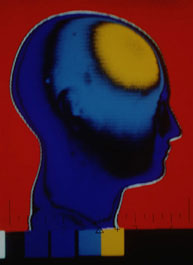 Neuroscience is a field devoted to the scientific study of the nervous system. Traditionally it is seen as a branch of biological sciences, but more recently there has been a surge in the convergence of interest from many allied disciplines, including cognitive and neuro-psychology, computer science, statistics, physics, and medicine. The scope of neuroscience has now broadened to include any systematic scientific experimental and theoretical investigation of the central and peripheral nervous system of biological organisms. Neuroscience is a field devoted to the scientific study of the nervous system. Traditionally it is seen as a branch of biological sciences, but more recently there has been a surge in the convergence of interest from many allied disciplines, including cognitive and neuro-psychology, computer science, statistics, physics, and medicine. The scope of neuroscience has now broadened to include any systematic scientific experimental and theoretical investigation of the central and peripheral nervous system of biological organisms.
The empirical methodologies employed by neuroscientists have been enormously expanded, from biochemical and genetic analysis of dynamics of individual nerve cells and their molecular constituents to imaging representations of perceptual and motor tasks in the brain. Many recent theoretical advances in neuroscience have been aided by the use of computational modeling.
The nervous system is composed of a network of neurons and other supportive cells (such as glial cells). Neurons form functional circuits, each responsible for specific tasks to the behaviors at the organism level. Thus, neuroscience can be studied at many different levels, ranging from molecular level to cellular level to systems level to cognitive level.
At the systems level, the questions addressed in systems neuroscience include how the circuits are formed and used anatomically and physiologically to produce the physiological functions, such as reflexes, sensory integration, motor coordination, circadian rhythms, emotional responses, learning and memory, et cetera. The related field of neuroethology, in particular, addresses the complex question of how neural substrates underlies specific animal behavior.
At the cognitive level, cognitive neuroscience addresses the questions of how psychological / cognitive functions are produced by the neural circuitry. The emergence of powerful new measurement techniques such as neuroimaging (e.g.,fMRI, PET, SPECT), electrophysiology and human genetic analysis combined with sophisticated experimental techniques from cognitive psychology allows neuroscientists and psychologists to address abstract questions such as how human cognition and emotion are mapped to specific neural circuitries. Neuroscience is also beginning to become allied with social sciences, and burgeoning interdisciplinary fields of neuroeconomics, decision theory and social neuroscience are starting to address some of the most complex questions involving interactions of brain with environment. |

 Neuroscience is a field devoted to the scientific study of the nervous system. Traditionally it is seen as a branch of biological sciences, but more recently there has been a surge in the convergence of interest from many allied disciplines, including cognitive and neuro-psychology, computer science, statistics, physics, and medicine. The scope of neuroscience has now broadened to include any systematic scientific experimental and theoretical investigation of the central and peripheral nervous system of biological organisms.
Neuroscience is a field devoted to the scientific study of the nervous system. Traditionally it is seen as a branch of biological sciences, but more recently there has been a surge in the convergence of interest from many allied disciplines, including cognitive and neuro-psychology, computer science, statistics, physics, and medicine. The scope of neuroscience has now broadened to include any systematic scientific experimental and theoretical investigation of the central and peripheral nervous system of biological organisms.